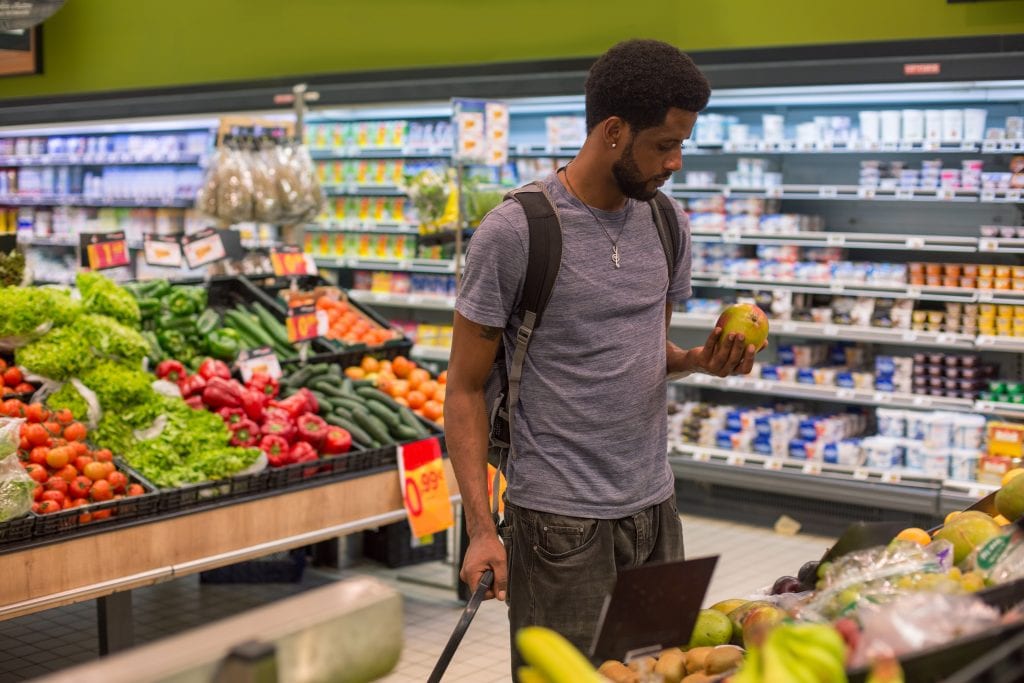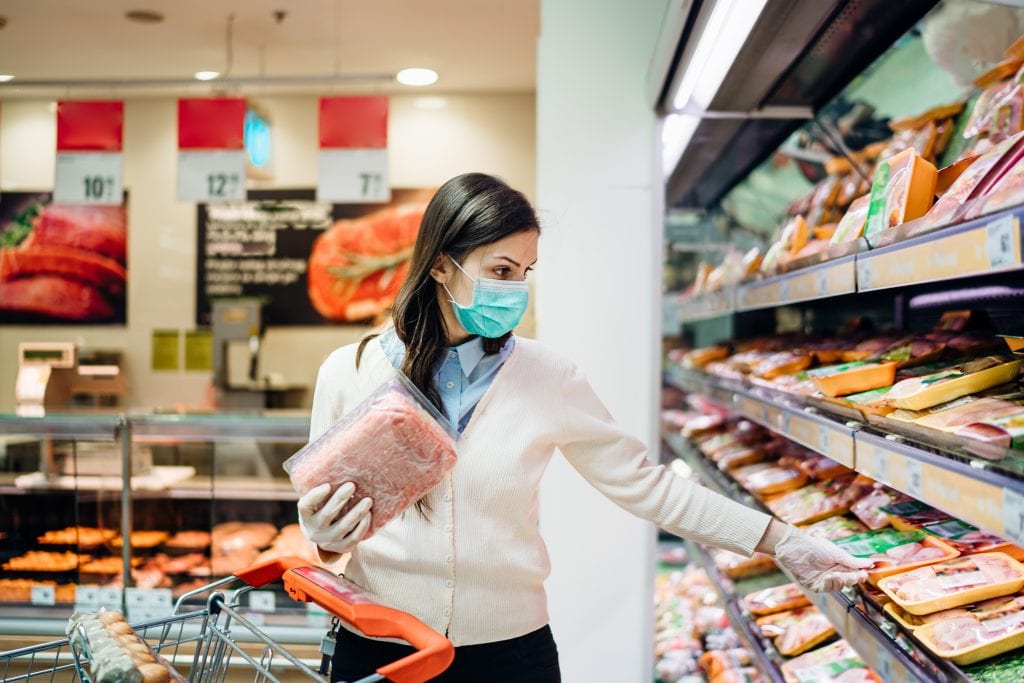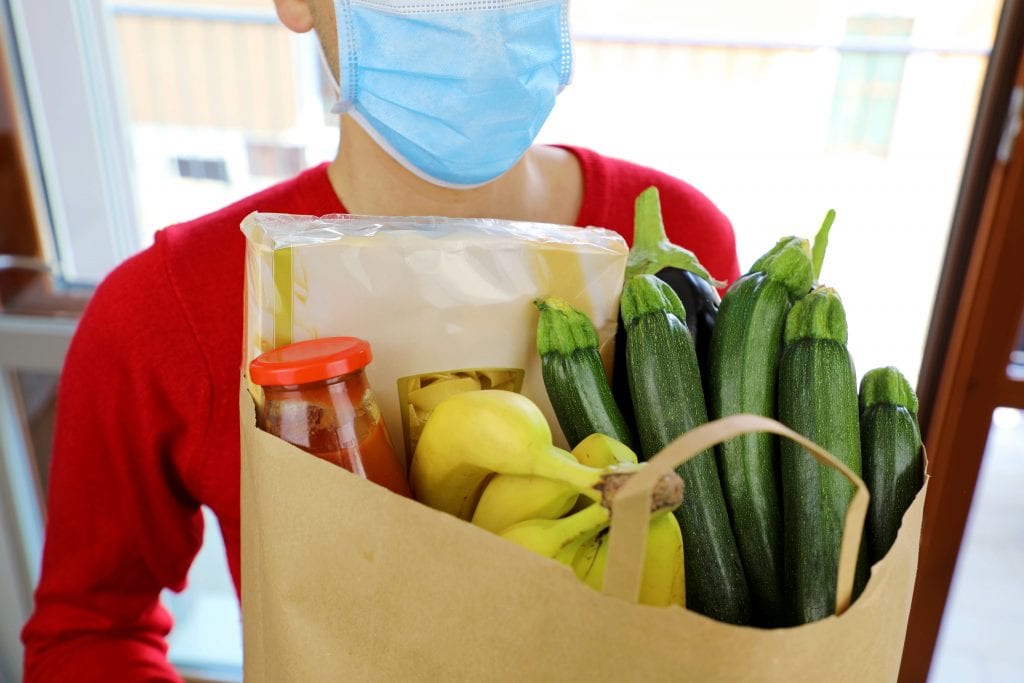Grocery shopping has never been a favorite pastime of mine. It’s time-consuming and I usually try to keep to a strict budget. Over the past few months, I noticed our grocery bills were going up and I thought I was overreacting when I started to complain to my family about our eating habits.
It turns out it wasn’t simply my family of four’s ravenous appetites that were taking a big bite out of my monthly budget. It turns out buying groceries is quite a bit more expensive these days thanks to a series of factors stemming from the COVID-19 outbreak.

African man with beard standing in supermarket, choosing fruits. Vegetable and milk showcases on background
Food Prices Are Up Across The Board
The U.S. Department of Commerce Bureau of Economic Analysis (BEA) looks at the prices of all products we buy from month to month. From cars to cereal, if we spend money on it, this agency crunches the numbers.
Since February 2020, food prices have gone up across the board, according to CNN’s interpretation of the BEA’s data. This includes:
- Meat and poultry: up 11%
- Beef and veal: up 20%
- Pork: up 8.5%
- Eggs: up 10%
- Cereal and fresh vegetables: up 4%
When shoppers are looking at an extra 4 to 20 cents per dollar spent on groceries, it doesn’t take long to figure out why food budgets are exploding for families. Many are already being hit hard due to reduced work hours or unemployment.
But why are food prices jumping up so much due to the pandemic? Prices are driven by supply and demand, but our food supply is not the main issue here in the United States.

The Supply Chain Couldn’t Keep Up
Our food supply was hit hard during spring and early summer due to illnesses at meat processing plants and other food suppliers, forcing them to close. This restricted the flow of food supply to grocery stores.
Meanwhile, demand for food at grocery stores was significantly up because restaurants were closed or restricted due to health guidelines. Therefore, people were eating at home more often. A spike in demand and lower supply meant higher prices for everyone.
“Food prices are rising not because we don’t have enough food, but mainly due to the fact that the agri-food supply chain is currently unable to deliver when and where food is needed due to the shortage of labor, particularly at farm level,” Sanjib Bhuyan, an associate professor at Rutgers University’s Department of Agriculture, Food and Resource Economics, told Today in May about why prices were increasing.
Until production levels get back to normal on the food supply end, food prices will continue to remain higher. But, experts do believe things will normalize eventually.
“Fortunately, I believe that this food price rise is temporary,” Bhuyan said. “It should mostly disappear as soon as the virus-induced restrictions are lifted allowing the agri-food supply chain to resume its normal functions within a short time afterwards.”

The Supply Chain Starts To Recover But Prices Stay High
In late July, Federal Reserve Chair Jerome H. Powell said that economic activity was picking up as businesses began to reopen. As a result, household spending recovered about half its early decline.
However, he noted, “For some goods, including food, supply constraints have led to notably higher prices, adding to the burden for those struggling with lost income.”
The Washington Post reports supply chain issues are improving, though. Eggs, no longer being hoarded, have actually gone down in price, and so has milk. However, most increased prices continue to linger. And now, many households have lost the $600 in enhanced unemployment benefits intended to help them weather the coronavirus.
With no end in sight to the pandemic and costs staying up for now, weathering the current climate is becoming even more of a challenge for many.
This story originally appeared on Don't Waste Your Money. Checkout Don't Waste Your Money for product reviews and other great ideas to save and make money.


